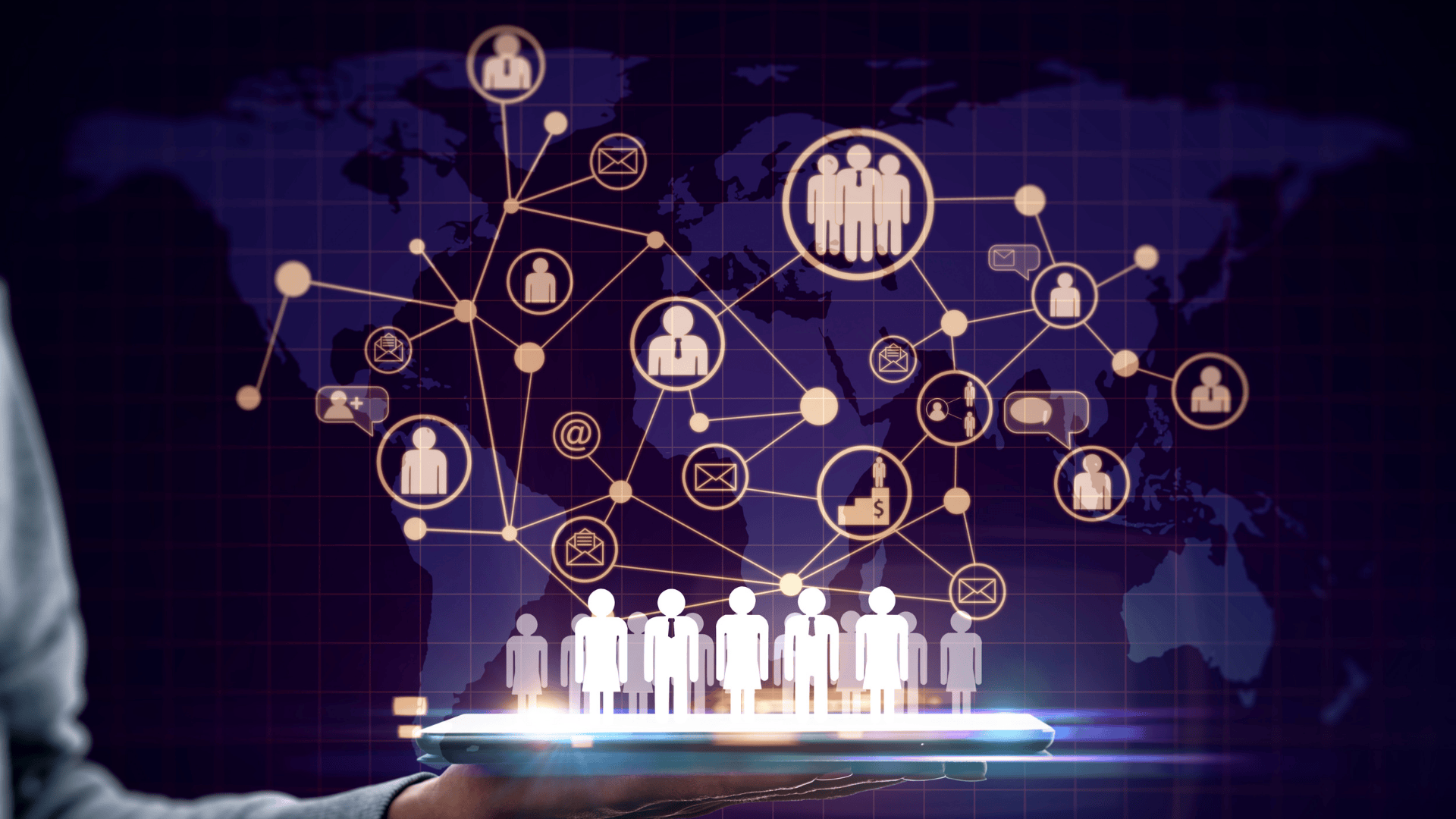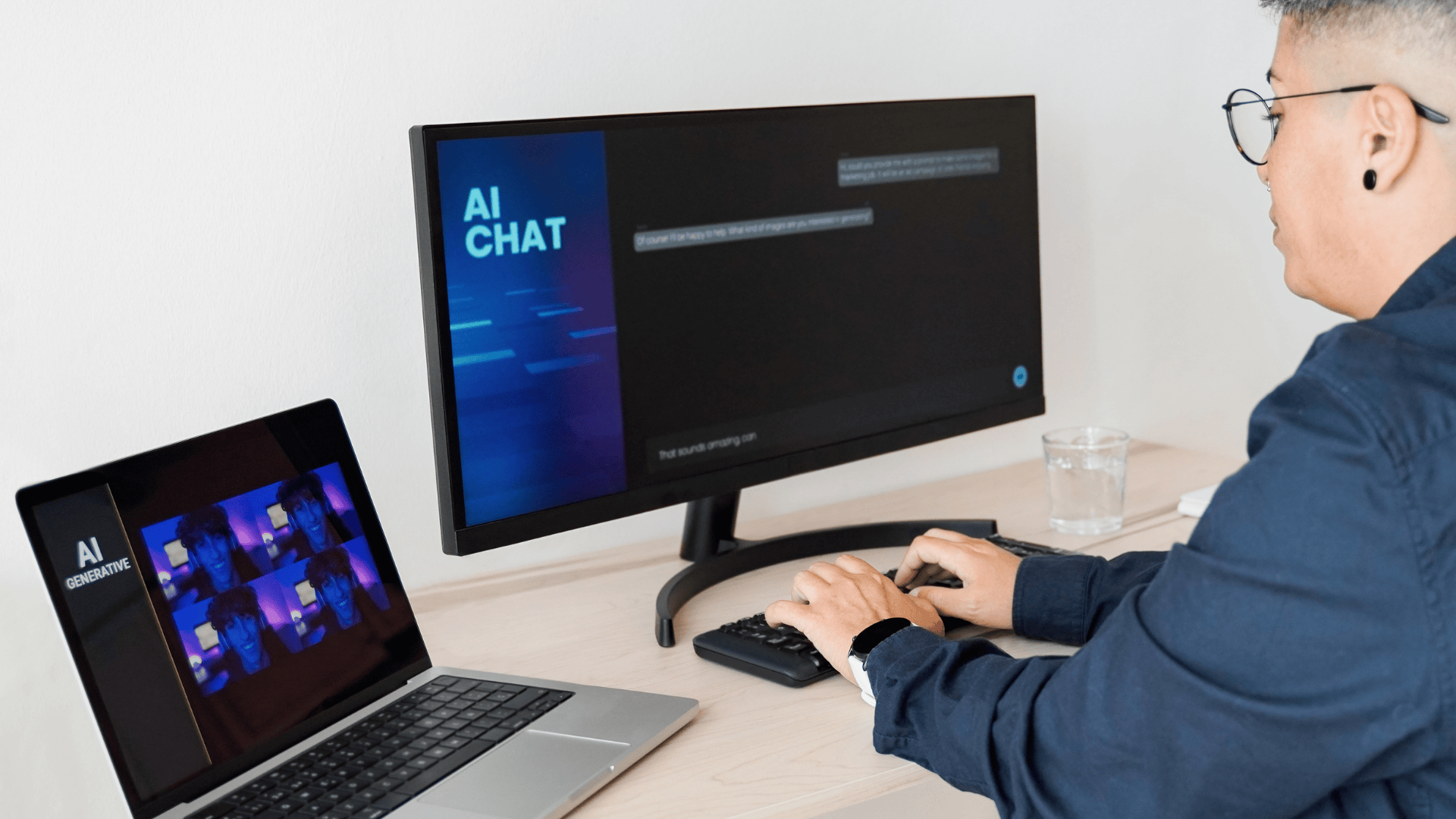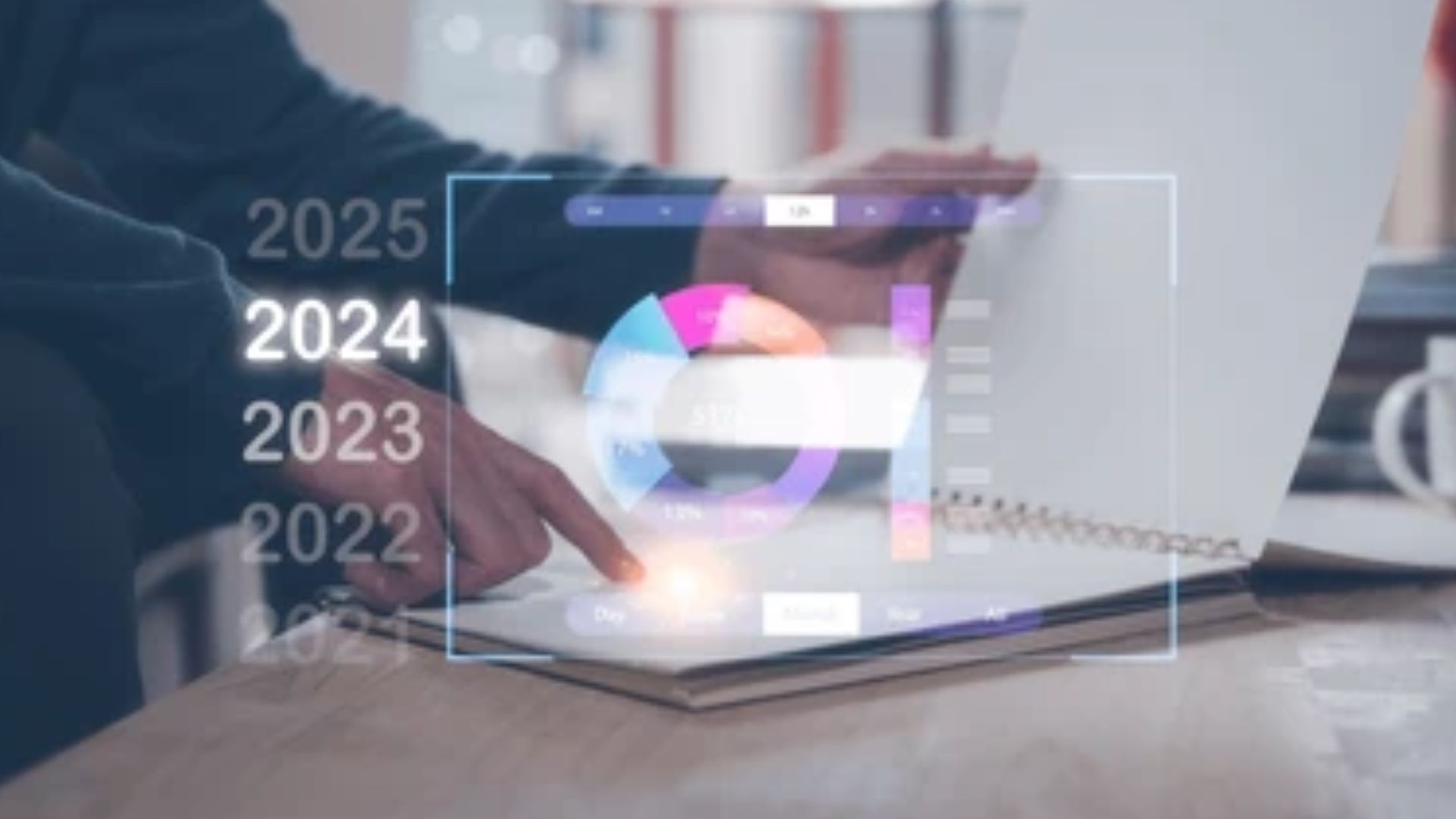Tag: AI in HR
-

What’s New in HR Automation and How It Benefits You Immediately
What’s New in HR Automation—and How It Benefits You ImmediatelyHR automation has evolved more in the past three years than in the previous three decades. What was once a department driven by paperwork, spreadsheets, and endless manual workflows is now becoming fully intelligent, predictive, and deeply connected to business growth. Today’s HR automation isn’t just about speed—it’s about accuracy, strategy, and giving HR leaders the ability to make smarter decisions faster. With platforms like NINJA HR leading the shift, organizations of all sizes are discovering immediate, measurable benefits from new HR technologies. In this 3000-word deep dive, we explore what’s changed, what’s new, and why it matters for every HR team aiming to work smarter—not harder.The New Era of HR AutomationHR automation used to be simple: converting manual tasks into digital checklists. Today, it’s a powerhouse of interconnected systems that use artificial intelligence, machine learning, and behavioral analytics to eliminate repetitive work and guide strategic HR decisions. Modern automation goes beyond task completion and becomes a partner in HR operations. It understands employee behavior, predicts trends, assists with compliance, improves accuracy, and connects every corner of the HR lifecycle. HR automation today is built on three pillars: intelligence, integration, and insight.AI-Powered Decision SupportOne of the biggest advancements in HR automation is AI-driven decision support. Instead of relying on manual analysis or fragmented data, modern HRMS platforms use AI to interpret employee patterns, identify early warning signals, and predict potential outcomes. NINJA HR’s AI engine, for example, analyzes attendance, engagement, and performance data to guide better decisions. It helps HR leaders spot risks like disengagement or turnover before they escalate, allowing proactive intervention.Automated Recruitment IntelligenceRecruitment automation has become smarter, faster, and more accurate. Resume scanning is no longer just keyword-based—instead, AI evaluates skill relevance, experience alignment, and cultural fit. NINJA HR’s recruitment automation ranks candidates, predicts their performance potential, and accelerates screening processes. Automated interview scheduling, chatbot-assisted candidate communication, and instant shortlisting reduce hiring time dramatically.Advanced Employee Self-Service ToolsToday’s employees expect seamless digital experiences. Modern HR automation includes advanced self-service portals powered by AI. Whether it’s applying for leave, checking PTO balances, updating documents, requesting letters, or viewing payslips, everything is instant and automated. NINJA HR offers responsive self-service dashboards that reduce workload for HR teams while boosting employee satisfaction. It helps employees manage their workflow efficiently without relying on HR intervention for routine queries.Next-Level Attendance and Time TrackingForget punch cards and manual attendance logs. HR automation now integrates biometric devices, GPS tracking for field teams, geofencing, facial recognition, and automated compliance alerts. NINJA HR syncs attendance in real time and ensures accurate shift tracking, overtime calculation, and leave synchronization. This eliminates payroll discrepancies and reduces time theft.Automated Learning and Development ProgramsTraining has become personalized thanks to AI. Modern HR automation analyzes employee skills, performance data, and future role requirements to create tailored learning paths. NINJA HR recommends courses, tracks completion, and provides learning analytics so companies can measure training impact. Automated reminders, mobile-friendly learning modules, and seamless LMS integration keep development ongoing and structured.Smarter Payroll and Compliance AutomationPayroll mistakes are one of the biggest pain points in HR. New HR automation tools calculate salary adjustments, track attendance, apply tax updates, manage reimbursements, and generate payslips automatically. NINJA HR uses compliance automation to stay updated on regional labor laws and policies to reduce manual errors. Built-in validation checks ensure every payroll cycle runs smoothly and accurately.Real-Time Analytics for Better HR LeadershipModern HR automation delivers real-time dashboards that present data in digestible visual formats. Whether it’s workforce analytics, performance trends, turnover patterns, or engagement insights, HR leaders get instant visibility. NINJA HR offers customizable dashboards that allow leaders to filter metrics by team, department, location, or role. With predictive analytics, HR can plan proactively rather than reactively.Workflow Automation That Reduces ChaosAutomation is no longer about isolated tasks—it’s about end-to-end workflows. NINJA HR automates processes like onboarding, offboarding, policy updates, asset allocation, probation evaluation, and leave approvals. Workflows trigger automatically based on specific actions or events. This eliminates missed steps, reduces HR workload, and ensures consistent employee experience.Modern Onboarding and Offboarding AutomationOnboarding is one of the most critical HR responsibilities. Modern automation offers digital forms, automated document collection, onboarding checklists, e-signatures, and scheduled training sessions. NINJA HR ensures every new hire is guided through a seamless onboarding journey. Similarly, offboarding automation prevents compliance gaps, ensures proper documentation, and protects organizational data.Chatbots and Virtual HR AssistantsAI chatbots allow employees to get instant answers to HR questions like policies, PTO, payroll status, and more. NINJA HR’s AI chat assistant reduces HR’s workload by answering repetitive questions 24/7. It improves accessibility, reduces resolution time, and enhances employee engagement.Immediate Benefits of Modern HR AutomationThe best part about today’s HR automation? The benefits begin immediately. Unlike older systems that required long learning curves, NINJA HR offers user-friendly interfaces and intuitive controls designed for HR teams of all sizes. Organizations see fast improvements in accuracy, time savings, engagement, and decision quality.Instant Time SavingsHR teams reclaim hours each week by eliminating repetitive tasks. Automated workflows streamline approvals, minimize follow-ups, and ensure tasks are completed without manual effort. Recruiters no longer sift through hundreds of resumes, managers don’t chase timesheets, and payroll teams avoid hours of reconciliation work.Cost Reductions from Day OneAutomation reduces hiring costs, payroll errors, compliance penalties, and administrative overhead. By centralizing HR processes, organizations reduce dependency on multiple software tools and subscriptions. Predictive turnover analytics minimize replacement costs by identifying at-risk employees early.Better HR Accuracy and ComplianceMistakes are expensive—and HR automation eliminates most of them. Automated attendance tracking, payroll calculations, and compliance alerts ensure HR stays accurate and audit-ready. Real-time validation checks help avoid errors that could result in penalties or disputes.Improved Employee ExperienceModern HR automation gives employees control over their experience. Easy access to documents, clear visibility into their data, and instant responses through chatbots create a more empowered workforce. Engaged employees are more productive, loyal, and aligned with company goals.Increased HR ProductivityWith repetitive tasks automated, HR professionals finally have time for what truly matters: culture building, engagement strategies, talent development, and leadership. Automation shifts HR from administrative work to strategic influence.Smarter Decision-MakingData becomes a superpower for HR teams using NINJA HR. Real-time analytics reveal issues early, predict future challenges, and offer actionable insights. Leaders make faster, more accurate, and more strategic decisions—backed by data, not guesswork.Future-Proofing HRModern HR automation evolves continuously. AI learns as the organization grows, making recommendations more accurate over time. With hybrid work models on the rise, automation ensures HR operations remain seamless, scalable, and adaptive.ConclusionHR automation has entered a revolutionary stage where intelligence, predictive analytics, and seamless workflows redefine how HR teams operate. What’s new in HR automation today is not just better technology—it’s a fundamentally better way of working. Platforms like NINJA HR empower HR leaders to automate tasks, improve compliance, elevate employee experience, and drive strategic growth. And the best part? The benefits start immediately. From faster processes to better decision-making, HR automation is no longer a future luxury—it is a present necessity that transforms HR from a reactive function into a proactive, data-driven powerhouse. -

Why AI-Driven HR Systems Are a Game-Changer for Growing Teams
Why AI-Driven HR Systems Are a Game-Changer for Growing TeamsGrowth is exciting, but for HR teams, it also means growing pains—more employees, more data, more compliance, and more complexity. Managing it all manually or even with basic HR software becomes unsustainable. That’s where artificial intelligence steps in. AI-driven HR systems like NINJA HR are transforming the way modern companies hire, manage, and retain their people. Instead of drowning in administrative work, HR leaders can now make data-driven decisions in seconds, personalize employee experiences, and scale operations efficiently. This article explores why AI-powered HR tools are not just the future—they’re the foundation of smarter, faster-growing teams today.The Challenge of Scaling HR Without AIWhen businesses expand, their HR departments face exponential challenges. More employees mean more recruitment cycles, more onboarding, more data to manage, and an increased need for engagement and compliance tracking. Traditional HR systems, built for basic data storage, simply can’t keep up. Manual decision-making slows down hiring, paper-based processes lead to errors, and limited visibility makes workforce planning reactive instead of proactive. Without automation and analytics, HR becomes a bottleneck instead of a growth enabler.Enter AI-Driven HR SystemsAI-driven HR platforms use machine learning, natural language processing, and predictive analytics to perform repetitive tasks and provide deep insights into your workforce. Instead of just storing employee data, they analyze it—spotting trends, predicting attrition, and recommending actions. NINJA HR takes this a step further by combining automation with intelligence, helping HR teams work faster, smarter, and more strategically.1. Smarter Recruitment with AIRecruiting at scale can be chaotic—hundreds of resumes, dozens of interviews, and endless follow-ups. AI simplifies this entire process. NINJA HR’s AI-driven recruitment tools scan resumes, rank candidates based on skill fit, and even predict performance potential. The system identifies the most relevant applicants instantly, cutting screening time by up to 70%. It can also automate communication, sending personalized updates to candidates and freeing HR from repetitive outreach. The result? Faster hiring cycles and better-quality hires.2. Predictive Insights for Employee RetentionEmployee turnover is costly, but AI helps HR see it coming. NINJA HR uses predictive analytics to analyze behavioral and performance data, identifying early signs of disengagement or burnout. It alerts managers when an employee’s risk of leaving rises, giving HR time to act proactively. Instead of reacting to resignations, companies can now address issues before they escalate—improving retention and morale.3. Personalized Learning and DevelopmentAI takes employee training beyond generic learning portals. With NINJA HR, AI analyzes each employee’s role, performance, and goals to recommend personalized development paths. Whether it’s suggesting leadership training for high performers or skill courses for junior staff, the platform ensures learning investments are targeted and measurable. This personalization boosts engagement and accelerates skill growth across the organization.4. Automating Repetitive HR TasksFrom updating records to approving leave requests, repetitive HR work consumes hours daily. NINJA HR automates these tasks using smart workflows and AI-based triggers. The system handles attendance tracking, payroll synchronization, and compliance reporting automatically. HR teams can configure approval chains once—and let AI manage them continuously. This frees HR from admin overload, allowing them to focus on people strategy and company culture.5. Enhanced Decision-Making Through DataAI transforms HR from intuition-driven to evidence-driven. Instead of relying on gut feeling, HR leaders can now use real-time data to make informed decisions. NINJA HR’s dashboards provide insights into hiring performance, employee satisfaction, and workforce productivity. The AI engine translates complex data into clear visuals and actionable recommendations, helping HR and leadership teams align decisions with business goals.6. AI-Powered Employee EngagementHappy employees stay longer, but keeping engagement high in growing teams can be tricky. NINJA HR uses sentiment analysis and feedback analytics to gauge morale across departments. It collects employee feedback, analyzes tone, and identifies areas that need attention. HR can then take targeted action to improve engagement before it drops. Automated pulse surveys, recognition alerts, and communication suggestions help keep your culture thriving even as your workforce scales.7. Smarter Compliance and Risk ManagementCompliance is one of the most complex HR responsibilities. Missing a regulation update or filing deadline can result in hefty penalties. AI-driven HRMS like NINJA HR continuously monitor compliance requirements and automatically update policies or alert HR to changes. The system ensures every document, record, and audit trail is maintained accurately—minimizing human error and reducing legal risks. With AI, compliance management becomes proactive instead of reactive.8. Workforce Planning with Predictive AnalyticsAs teams grow, predicting future workforce needs becomes essential. NINJA HR’s AI-driven analytics can forecast hiring requirements, skill gaps, and resource shortages based on historical data and business growth patterns. This foresight helps HR plan ahead, align recruitment with business goals, and avoid overstaffing or talent shortages. It’s not just automation—it’s strategic foresight powered by AI.9. Improving Employee Experience with ChatbotsAI-powered chatbots are becoming the new HR assistants. NINJA HR includes virtual chat support that answers employee queries instantly—about policies, leave balances, or payslips—24/7. This not only improves employee experience but also relieves HR teams from answering repetitive questions. As a result, response times drop, satisfaction increases, and HR becomes more accessible to employees across all locations.10. The Cost Advantage of AI-Driven HRImplementing AI in HR isn’t just about innovation—it’s about efficiency and cost reduction. Automating recruitment, payroll, and compliance processes saves hundreds of work hours each month. Predictive insights reduce turnover costs, while data-driven decisions prevent over-hiring or underutilization. NINJA HR delivers measurable ROI by combining automation and intelligence in one unified system, making it a cost-effective investment for growing businesses.Overcoming the Fear of AI in HRSome HR professionals worry that AI will replace their roles, but in reality, it enhances them. AI takes over repetitive, low-value work—allowing HR professionals to focus on strategy, leadership, and culture. Instead of replacing HR, AI amplifies its impact. NINJA HR is built to augment human decision-making, not eliminate it. The system provides recommendations, not commands—keeping HR firmly in control.The Role of Human Insight in an AI-Driven WorldWhile AI provides data and automation, empathy and intuition remain uniquely human. HR professionals still drive relationships, communication, and culture-building—things AI can’t replicate. The best HR systems, like NINJA HR, combine the efficiency of AI with the empathy of human leadership. This blend creates an HR function that’s not just faster but also more compassionate and effective.Integrating AI Seamlessly: Why NINJA HR ExcelsTransitioning to AI shouldn’t mean complex setups or long learning curves. NINJA HR integrates seamlessly into existing workflows, syncing with your current systems and automating processes gradually. Its intuitive design ensures that even non-technical HR staff can use it comfortably. With built-in training tools, support, and modular scalability, it’s a smooth upgrade—not a disruption.ConclusionFor growing teams, the old ways of managing HR just don’t work anymore. AI-driven HR systems like NINJA HR offer the intelligence, automation, and scalability modern organizations need to thrive. They eliminate repetitive tasks, predict workforce trends, and create personalized employee experiences—all while saving time and costs. More importantly, they empower HR to move beyond administration and become strategic drivers of growth. In a world where speed, data, and people all matter, AI in HR isn’t optional—it’s essential. And NINJA HR is the partner that makes this transformation effortless. -

Your Shortcut to Spot-On HR Strategy
What Are the Roles of HR and How NINJA HR Solves Them and Makes Them EasyHuman Resources (HR) plays a crucial role in any organization, acting as the strategic and operational backbone that supports workforce development, compliance, performance, and culture. In today’s fast-paced digital world, these roles have grown more complex and data-driven. That’s where technology like NINJA HR steps in—to simplify, automate, and enhance the HR function. This article explores the major roles of HR and how NINJA HR transforms each with smart automation and intuitive design.Talent Acquisition and RecruitmentOne of the foundational responsibilities of HR is identifying, attracting, and hiring the right talent. Traditionally, this involves posting jobs, screening resumes, coordinating interviews, and managing offers—often using spreadsheets and email threads.NINJA HR automates and centralizes recruitment workflows. It offers applicant tracking, interview scheduling, and candidate pipeline visibility from a single dashboard. This shortens time-to-hire and reduces hiring bottlenecks, while giving hiring teams access to a smoother, data-backed process.Employee OnboardingEffective onboarding reduces early attrition and helps new hires feel engaged from day one. However, manual onboarding is often error-prone and time-consuming.NINJA HR provides digital onboarding workflows, customizable checklists, and e-signature integrations. New employees receive clear tasks, training modules, and introductions automatically, streamlining what can often take days into a matter of hours.Performance ManagementContinuous performance management is essential for developing talent and aligning employee goals with company strategy. Yet annual reviews often fall short due to poor structure or irregularity.NINJA HR modernizes performance reviews with ongoing feedback, real-time goal tracking, and automated review cycles. Managers can set goals, rate achievements, and recognize contributions—all in one unified platform.Payroll and CompensationHR teams are responsible for ensuring employees are paid accurately and on time. Mistakes in payroll can erode trust and create legal risks.NINJA HR integrates with payroll providers to calculate wages, taxes, and deductions seamlessly. Automated workflows reduce errors and save HR significant administrative time. Employees can view payslips and benefits via a self-service portal.Training and DevelopmentOrganizations must nurture continuous learning to stay competitive. Coordinating training, tracking completion, and measuring impact can be overwhelming without the right tools.NINJA HR allows HR teams to assign training, monitor progress, and generate completion reports. From compliance courses to leadership training, every session is documented and accessible.Employee EngagementA motivated workforce is more productive and loyal. Engagement surveys and recognition programs often require extra effort to manage manually.With NINJA HR, HR leaders can launch pulse surveys, collect feedback anonymously, and track engagement metrics. Recognition tools allow peers and managers to celebrate wins, boosting morale.Leave and Attendance ManagementTracking time off, ensuring coverage, and enforcing policies require consistency and visibility—a challenge for many HR teams.NINJA HR offers automated leave workflows, balances tracking, holiday calendars, and approval routing. Employees can request leave, while HR monitors trends and compliance.Compliance and DocumentationLabor law compliance is non-negotiable. But maintaining up-to-date documentation, audit trails, and certifications manually increases risk.NINJA HR stores digital records with versioning and expiry alerts. Whether it’s a contract or a license renewal, HR is automatically notified of pending deadlines, avoiding penalties and confusion.Workforce Planning and AnalyticsStrategic HR requires actionable data—on turnover, engagement, hiring trends, and more. Manual reporting is often inaccurate and outdated.NINJA HR delivers real-time dashboards and customizable reports. From headcount to attrition, HR gains instant insight into workforce dynamics, enabling proactive strategy development.Employee Self-ServiceEmpowering employees to manage their own HR tasks saves time and boosts satisfaction.NINJA HR provides a self-service portal where employees can update profiles, view payslips, request time off, and complete training—without needing to contact HR directly.HR Team CollaborationLarge HR teams need tools for internal collaboration, task assignment, and information sharing.NINJA HR facilitates internal workflows, task delegation, shared notes, and audit logs—making teamwork seamless and transparent.ConclusionFrom recruitment to retention, HR teams face diverse and demanding responsibilities. NINJA HR not only simplifies those duties with automation and smart design but also turns HR into a data-driven, strategic advantage. By reducing manual tasks and increasing visibility, HR professionals are free to focus on what truly matters: nurturing talent, improving culture, and driving business success. -

How NINJA HR Transforms Chaos into Clarity with Smart HR Tech
How NINJA HR Transforms Chaos into Clarity with Smart HR TechThe HR department of any organization is often the backbone that ensures smooth operations, employee satisfaction, and legal compliance. But let’s face it—HR can get chaotic. From managing endless paperwork to navigating compliance regulations and keeping up with employee needs, HR professionals are constantly pulled in multiple directions. This is where NINJA HR steps in as a game-changer. Leveraging smart HR technology, NINJA HR transforms chaos into clarity, giving organizations a new way to manage their human resources with precision, efficiency, and ease.NINJA HR isn’t just another HR software—it’s an all-in-one, tech-powered platform designed to simplify and streamline every aspect of human resource management. Whether you’re a startup or an established enterprise, this platform caters to the diverse and dynamic needs of modern HR departments. In this blog, we’ll explore how NINJA HR is redefining HR management and why it’s become a must-have tool for businesses aiming to scale with clarity and control.Understanding the Chaos in Traditional HRHR teams often face a barrage of challenges: inconsistent data, manual documentation, time-consuming administrative work, poor communication channels, and lack of real-time analytics. These problems aren’t just inconvenient—they cost time, money, and employee satisfaction. Traditional methods fail to provide scalability, transparency, or efficiency. When HR is buried under paperwork and reactive processes, strategic initiatives take a backseat.What Makes NINJA HR Different?NINJA HR offers a technology-first approach to HR management. It’s built with scalability, user experience, and integration in mind. The goal is to automate, simplify, and empower. Below are the key features that set NINJA HR apart:– Automated Workflows: From employee onboarding to leave approvals and performance reviews, every routine task can be automated with predefined workflows.
– Real-Time Analytics: Make informed decisions with up-to-the-minute insights into employee data, turnover rates, engagement levels, and more.
– Seamless Integrations: NINJA HR integrates effortlessly with payroll systems, communication tools, project management platforms, and compliance databases.
– Employee Self-Service: Employees can access payslips, request leave, view performance goals, and update their personal information from a centralized dashboard.
– Security and Compliance: With encrypted data storage and automated compliance checks, your HR operations stay secure and regulation-ready.Streamlining Recruitment with Smart TechnologyRecruitment is one of the most resource-heavy HR functions. NINJA HR lightens the load by offering smart recruitment tools that take the guesswork out of hiring. With AI-powered resume parsing, candidate scoring, and automatic interview scheduling, recruiters can focus on building relationships rather than shuffling paperwork.NINJA HR also integrates job boards, social media platforms, and applicant tracking systems (ATS) to create a centralized recruitment ecosystem. Hiring managers can collaborate, track progress, and provide feedback in real-time.Boosting Employee Engagement and RetentionEngaged employees are productive employees. NINJA HR includes tools that enhance communication, recognize achievements, and track engagement trends. Through built-in surveys, real-time feedback tools, and recognition programs, companies can nurture a culture of appreciation and inclusion.Moreover, performance management features allow for frequent check-ins, goal tracking, and constructive feedback—all of which contribute to better employee retention and career development planning.Simplifying Compliance and Document ManagementOne of the most dreaded aspects of HR is ensuring compliance with local, state, and federal laws. NINJA HR minimizes compliance risks by offering tools for tracking certifications, managing digital documentation, and setting automated reminders for regulatory deadlines.Additionally, built-in audit trails and permission-based access ensure that only the right people have access to sensitive information, while every action is logged for security and accountability.Customizable Dashboards and ReportingNINJA HR provides powerful dashboards that give both HR professionals and leadership instant visibility into workforce data. These dashboards are fully customizable, allowing teams to monitor KPIs such as attrition, diversity metrics, hiring velocity, and training completion rates. With exportable reports, data storytelling becomes easier, enabling HR to present actionable insights during leadership meetings.Scalability and Adaptability for All Business SizesWhether you’re managing a team of 10 or 10,000, NINJA HR is designed to grow with your organization. It adapts to complex organizational structures, multiple locations, and varying policies with ease. Features like multi-level access, localization, and customizable templates make it a fit for global teams and local startups alike.User-Centric Design for Modern TeamsGone are the days of clunky HR software. NINJA HR features a clean, intuitive interface that minimizes training time and maximizes productivity. Employees and managers alike appreciate the mobile-responsive design, which allows access from anywhere, at any time. Notifications, approvals, and updates can all be handled on-the-go.Cost Efficiency and ROININJA HR eliminates the need for multiple tools by offering an all-in-one solution. The reduction in administrative overhead, paper usage, and compliance errors adds up quickly. By freeing up HR to focus on strategy and engagement, NINJA HR delivers tangible returns on investment in both financial terms and workforce morale.Client Success StoriesMany companies have transformed their HR departments using NINJA HR. For example, a mid-sized logistics company reduced onboarding time by 60% using automated checklists and e-signatures. A tech startup improved retention by 40% after implementing regular employee pulse surveys and actionable insights from engagement data.Conclusion: From Chaos to ClarityNINJA HR isn’t just solving HR problems—it’s reimagining what HR can be. In a world where agility, data, and employee experience are non-negotiable, having a reliable, tech-powered HR system is crucial. By turning disorganization into structure, inefficiency into automation, and confusion into clear data, NINJA HR empowers organizations to lead with clarity.If you’re ready to upgrade from outdated spreadsheets and reactive processes, NINJA HR is your path forward. Say goodbye to HR chaos—and hello to smarter, simpler, and more strategic human resource management. -

Tech-Driven HR: Solving Real Problems with Real Innovation
Tech-Driven HR: Solving Real Problems with Real InnovationThe HR landscape has been experiencing significant shifts in recent years, driven by the increasing role of technology in every business function. While human resources have traditionally been seen as a series of administrative tasks, technology has opened the door to innovative solutions that not only streamline operations but also enhance the employee experience, improve decision-making, and ultimately, transform HR into a strategic asset.But the transformation doesn’t happen overnight, and for many businesses, adopting the right technologies can feel overwhelming. The good news is, there are now countless HR tech tools available that cater to a wide variety of needs. Whether it’s for recruitment, employee engagement, performance management, or compliance, there is a tech solution to address each challenge. In this blog, we’ll explore how tech-driven HR is solving real-world problems and how businesses can leverage these innovations to create a more efficient and human-centered workplace.Understanding the Need for HR InnovationHR has traditionally been bogged down by manual processes and a lack of integration across systems. Tasks like payroll processing, employee record management, and recruitment could take up significant portions of an HR professional’s time. As businesses scale, these processes become more complex and harder to manage, leading to inefficiency and human error. This is where technology comes in.In today’s fast-paced world, employees and employers alike expect more from HR. Employees want seamless, personalized experiences, and businesses want data-driven insights to make better decisions. The pressure on HR departments to deliver on these expectations has never been higher, and that’s where HR technology is stepping in.The Power of HR TechnologyThe rise of HR technology has brought about a paradigm shift in how businesses manage their human capital. From recruitment to retirement, technology is enabling HR departments to automate tasks, increase efficiency, and focus on strategic initiatives that add value to the business.Some of the key areas where technology is transforming HR include:
– Recruitment and Talent Acquisition
– Employee Engagement and Communication
– Performance Management
– Learning and Development
– Payroll and Benefits Administration
– Compliance and Risk ManagementLet’s take a deeper dive into some of these areas.Tech Solutions for Recruitment and Talent AcquisitionRecruitment is often one of the most time-consuming processes for HR teams. Sorting through thousands of resumes and conducting endless rounds of interviews can take a significant toll on HR professionals. Fortunately, AI-driven recruitment software is revolutionizing the process.– AI-Powered Screening: Automated systems can screen resumes, rank candidates, and match qualifications to job descriptions in a fraction of the time it would take a human recruiter. This ensures that only the best-suited candidates make it through the initial stages of the hiring process.– Applicant Tracking Systems (ATS): ATS platforms allow HR teams to streamline the recruitment process, track applicants, and schedule interviews more efficiently. These systems often integrate with other HR tools, such as job boards and social media channels, to cast a wider net in attracting candidates.– Video Interviewing Platforms: Video interviewing tools enable recruiters to interview candidates remotely, saving time and expanding the talent pool. Many platforms also include AI features that assess candidate responses, making the interview process more efficient.Enhancing Employee Engagement and CommunicationIn today’s remote and hybrid work environments, fostering employee engagement and communication has become more challenging. Fortunately, technology is offering new ways to keep employees connected, motivated, and informed.– Employee Engagement Platforms: These platforms measure employee satisfaction, provide real-time feedback, and help organizations address issues before they escalate. Engagement tools often include surveys, pulse checks, and recognition features to boost morale and identify areas for improvement.– Communication Tools: Chat platforms like Slack or Microsoft Teams have become the cornerstone of communication for many organizations. These tools offer instant messaging, file sharing, and video conferencing, allowing employees to collaborate seamlessly, regardless of location.– Recognition and Rewards Systems: Technology allows businesses to implement recognition programs that celebrate achievements and milestones, enhancing employee motivation and morale. These platforms enable peer-to-peer recognition, which fosters a positive and inclusive workplace culture.Performance Management ReimaginedTraditional performance reviews, which often rely on annual evaluations, are no longer sufficient in the fast-paced work environment of today. Technology has paved the way for more continuous, data-driven approaches to performance management.– Continuous Feedback: Rather than waiting for yearly reviews, platforms like Lattice or 15Five facilitate continuous feedback between managers and employees. This regular exchange helps employees stay aligned with their goals and gives them the tools they need to grow in real-time.– Goal Setting and Tracking: OKR (Objectives and Key Results) software such as Weekdone or Gtmhub allows businesses to set clear, measurable goals for employees and track their progress over time. These platforms ensure that everyone is working toward common objectives and that performance is always aligned with organizational priorities.– Employee Development: Many performance management systems now incorporate development plans that are tailored to individual employees. By focusing on personal growth and skill enhancement, these platforms support a culture of learning and continuous improvement.Learning and Development: Building a Future-Ready WorkforceWith the rapid pace of technological advancement, businesses need to ensure that their employees are constantly learning and evolving. Learning management systems (LMS) have become critical for organizations looking to upskill their workforce and build a future-ready team.– Learning Platforms: Platforms like LinkedIn Learning and Coursera offer employees access to a wide range of online courses that help them build new skills or improve existing ones. These tools allow employees to take charge of their own learning and development, making it easier to stay competitive in an ever-changing job market.– Personalized Learning Paths: Many companies are now using AI to offer personalized learning paths based on an employee’s role, career goals, and skill gaps. This ensures that employees are always equipped with the right tools and knowledge to succeed in their current role and grow within the company.Payroll and Benefits Administration Made EasyOne of the most important—and most complex—tasks HR teams face is managing payroll and benefits. With the help of technology, payroll processing can be automated, and benefits enrollment can be streamlined, reducing the potential for errors and improving employee satisfaction.– Payroll Automation: Cloud-based payroll systems like Gusto or ADP streamline the payroll process, ensuring that employees are paid on time, every time. These systems can handle tax calculations, deductions, and reporting, reducing the administrative burden on HR teams.– Benefits Management: HR tech tools help simplify benefits enrollment, ensuring that employees have easy access to their health benefits, retirement plans, and other perks. These platforms often include self-service portals where employees can view and update their benefits, reducing HR’s workload.Compliance and Risk ManagementCompliance is one of the most critical aspects of HR, but it is also one of the most complex. Managing legal requirements, workplace regulations, and employee documentation can be overwhelming. Fortunately, HR technology is simplifying compliance and risk management.– Compliance Software: HR compliance tools help businesses stay on top of changing laws and regulations, ensuring they remain in compliance with local, state, and federal requirements. These platforms often include built-in compliance checklists, automated reminders, and reporting features that make it easier to track key dates and filings.– Document Management Systems: Technology enables HR to securely store and manage employee records, contracts, and other important documents. Cloud-based systems ensure that these records are easily accessible and protected from unauthorized access.Conclusion: The Future of Tech-Driven HRThe role of technology in HR is only going to continue to grow. As businesses continue to face new challenges in an increasingly digital world, tech-driven HR solutions will be crucial for creating more efficient, innovative, and engaging workplaces.By embracing HR technology, companies can streamline processes, improve the employee experience, and make better, data-driven decisions. The businesses that invest in the right tools today will be better positioned to thrive in the future.The future of HR is tech-driven, and those who adopt these innovations will lead the way. Stay ahead of the curve, and don’t settle for outdated HR practices when you can drive real change with technology. -

The HR Headache You Didn’t Know You Could Solve Until Now
The HR Headache You Didn’t Know You Could Solve Until NowHuman Resources (HR) is the backbone of any successful organization, playing a vital role in managing talent, enhancing employee engagement, maintaining compliance, and building a strong organizational culture. Yet, for many companies—especially small to mid-sized enterprises—HR often becomes a source of stress, confusion, and inefficiency. The evolving complexities of labor laws, the constant demand for better employee experiences, and the increasing reliance on digital transformation have turned HR into one of the most challenging departments to manage effectively. But what if the HR struggles you’ve been dealing with have a surprisingly simple solution? This blog dives deep into the root of common HR problems and explores how innovative tools and strategic approaches can transform HR from a pain point into a competitive advantage.The Hidden Costs of Inefficient HRWhile businesses focus on profit margins, customer satisfaction, and product development, HR inefficiencies often go unnoticed—until it’s too late. Here are just a few ways inefficient HR systems can drain your business:– Wasted Time and Resources: Manual onboarding, disorganized paperwork, and inconsistent communication can cost hours of productivity each week.
– Legal and Compliance Risks: Missing deadlines on labor laws, failure to document employee grievances, or improper classification of employees can lead to legal trouble.
– Employee Turnover: A clunky hiring process and lack of engagement can drive top talent away.
– Low Morale: Employees are more likely to be disengaged if they feel HR processes are slow, outdated, or unresponsive.What’s worse, many of these issues are accepted as the norm, leaving leadership to react to problems instead of preventing them.Why Traditional HR Methods Fall ShortMany organizations are still using outdated methods—think spreadsheets, binders, email threads, and manual payroll systems. These solutions might have worked in the past, but today’s fast-paced work environments demand flexibility, automation, and real-time decision-making.Common limitations of traditional HR approaches include:
– Lack of Integration: HR data scattered across systems results in errors and wasted time.
– Inconsistent Employee Experience: From hiring to exit interviews, inconsistency leads to confusion.
– Data Inaccuracy: Manual entries are prone to human error.
– Inability to Scale: Growing teams outgrow manual systems quickly.This begs the question: Is there a smarter way to manage HR?The Shift Toward Digital HR TransformationModern businesses are adopting digital tools to streamline HR operations. From cloud-based platforms to AI-driven recruitment systems, the industry is undergoing a seismic shift.Here are a few digital solutions reshaping HR:
– Automated Payroll and Benefits Management
– Digital Onboarding Platforms
– Employee Self-Service Portals
– AI-Powered Resume Screening
– HR Analytics and Reporting DashboardsThese tools not only reduce human error but also give HR leaders the data-driven insights they need to make informed decisions.Solving the Real HR Headache: A Unified HR PlatformThe real headache isn’t just about having too many HR problems—it’s about having too many disconnected solutions. Companies often subscribe to multiple tools, each solving a specific issue but adding to the complexity.The solution? A unified HR platform that consolidates recruitment, payroll, performance management, compliance, and analytics under one roof.Benefits include:
– Centralized Data Access
– Improved Employee Experience
– Automated Compliance Monitoring
– Real-Time Insights and Forecasting
– Reduced Administrative OverheadWith one powerful platform, HR can shift from firefighting to strategic planning.Case Study: From Chaos to ClarityLet’s take the example of a mid-sized marketing agency that had over 100 employees. They used one tool for payroll, another for time tracking, and a separate one for applicant tracking. The result?– HR spent 60% of their time reconciling data
– Employees were frustrated by inconsistent experiences
– New hires had a poor onboarding experienceOnce they implemented a unified HR platform:
– Onboarding time dropped by 50%
– Employee satisfaction scores increased
– HR could focus on culture and performance initiatives instead of paperworkOvercoming Resistance to HR TechnologyNot every team is ready to embrace new tools. Resistance to change is natural, especially when dealing with legacy systems and traditional HR practices. Here’s how to ease the transition:– Educate and Train: Provide clear explanations and hands-on training.
– Start Small: Begin with one area like time-off requests or onboarding.
– Show Quick Wins: Demonstrate tangible benefits within weeks.
– Gather Feedback: Make employees feel heard during the transition.When employees see how much smoother processes become, they’ll be more open to larger shifts.How to Choose the Right HR SolutionSelecting the right HR tool for your business isn’t a one-size-fits-all decision. Consider the following factors:– Scalability: Can the tool grow with your business?
– User Experience: Is it easy for both HR staff and employees to use?
– Integration Capabilities: Does it work with your existing systems?
– Customer Support: How responsive is the vendor?
– Customization Options: Can you tailor it to your company’s processes?A good platform should simplify—not complicate—your operations.Looking Ahead: The Future of HR Is Smart and StrategicHR is no longer about just processing paperwork. It’s about building great teams, nurturing talent, and driving business strategy. As HR tech continues to evolve, we’ll see:
– Greater use of predictive analytics
– Enhanced focus on mental health and well-being
– AI-led career development planning
– Diversity and inclusion monitoring toolsForward-thinking businesses are already reaping the benefits of strategic HR. Are you one of them?Conclusion: Don’t Settle for HR HeadachesYou don’t have to live with the stress, inefficiency, and chaos that often comes with managing HR. The tools exist. The strategies are proven. And the transformation is more accessible than ever.Whether you’re a small business owner or the head of a growing HR team, the solution is simple: embrace digital transformation and choose platforms that streamline—not complicate—your work.The HR headache you didn’t know you could solve? It’s already solvable. All you have to do is take the first step. -

Revolutionize Your Recruitment Process with These AI Tools
Revolutionize Your Recruitment Process with These AI Tools
In today’s competitive talent market, traditional recruitment methods are often inefficient and time-consuming. Artificial intelligence (AI) is transforming the recruitment landscape by automating tasks, enhancing candidate sourcing, and improving the overall hiring process. This article explores how AI tools can revolutionize your recruitment process, leading to more efficient and effective talent acquisition.
The Impact of AI on Recruitment
AI is streamlining and enhancing various aspects of recruitment, from candidate sourcing and screening to interview scheduling and onboarding. By leveraging AI, HR professionals can focus on strategic initiatives and build stronger candidate relationships.
- Automation: Automating repetitive tasks, such as resume screening and interview scheduling.
- Enhanced Sourcing: Identifying and engaging with top talent across various platforms.
- Improved Candidate Experience: Providing personalized and efficient communication.
1. AI-Powered Candidate Sourcing
AI tools can analyze vast amounts of data from various sources to identify and engage with qualified candidates, expanding your talent pool and improving sourcing efficiency.
- AI-Driven Job Boards: Platforms like Eightfold AI and HireVue use AI to match candidates with relevant job openings.
- Social Media Sourcing: Tools like Hiretual and SeekOut leverage AI to identify candidates on social media platforms.
- Boolean Search Automation: AI automates complex Boolean searches to find highly specific candidate profiles.
2. AI-Based Resume Screening and Parsing
AI can analyze resumes and extract relevant information, automating the screening process and saving time for HR professionals.
- Automated Resume Parsing: Tools like Textio and HireAbility parse resumes and extract key skills and experience.
- Skills Matching: AI algorithms match candidate skills with job requirements.
- Bias Reduction: AI can help reduce unconscious bias in resume screening.
3. AI-Enhanced Candidate Assessment
AI-powered assessment tools can evaluate candidate skills, personality traits, and cultural fit, providing objective insights and improving hiring decisions.
- Skills Assessment: Platforms like Pymetrics and HackerRank assess candidate skills through gamified challenges.
- Personality and Cultural Fit: AI analyzes candidate responses to questionnaires and interviews to assess personality and cultural fit.
- Video Interview Analysis: AI analyzes video interviews to assess candidate communication skills and body language.
4. AI-Driven Interview Scheduling and Communication
AI tools can automate interview scheduling and streamline communication with candidates, improving efficiency and candidate experience.
- Automated Scheduling: Tools like X.ai and Calendly automate interview scheduling based on candidate and interviewer availability.
- Chatbots for Candidate Communication: AI-powered chatbots answer candidate questions and provide updates on the hiring process.
- Personalized Communication: AI tailors communication to individual candidates, enhancing engagement.
5. AI for Onboarding and Employee Retention
AI can enhance the onboarding process and improve employee retention by providing personalized support and identifying potential issues.
- Personalized Onboarding: AI creates customized onboarding plans based on employee roles and needs.
- Employee Sentiment Analysis: AI analyzes employee feedback and communication to identify potential issues and improve retention.
- Predictive Analytics for Retention: AI identifies employees at risk of leaving and suggests retention strategies.
Conclusion: AI tools are revolutionizing the recruitment process, enabling HR professionals to streamline operations, enhance candidate sourcing, and improve hiring decisions. By embracing these technologies, organizations can attract top talent, enhance the candidate experience, and build a competitive advantage in the talent market.
-

AI-Powered HR – From Onboarding to Offboarding Excellence
NINJA HR: AI-Powered HR – From Onboarding to Offboarding Excellence
How AI is Transforming Every Stage of the Employee Lifecycle
Introduction: The AI Revolution in HR
HR is evolving from a support function into a strategic powerhouse. AI-powered HR solutions like NINJA HR streamline processes, enhance engagement, and optimize every stage of the employee lifecycle.
1. AI-Powered Recruitment
How AI Enhances Hiring:
- Instant resume screening with NLP.
- AI-driven skill and cultural fit analysis.
- Automated candidate communication.
Benefits: Faster hiring, unbiased decisions, and an improved candidate experience.
2. AI-Driven Onboarding
Why AI Onboarding Matters:
- AI chatbots answer new hire questions 24/7.
- Automated paperwork processing.
- Personalized training modules for each hire.
Outcome: Higher engagement, reduced admin work, and faster productivity.
3. AI-Powered Employee Engagement
How AI Boosts Engagement:
- AI pulse surveys detect disengagement early.
- Career development plans tailored by AI.
- Real-time AI feedback and coaching.
Impact: Higher retention, more productive teams, and better leadership insights.
4. AI-Driven Learning & Development
AI-Powered Upskilling:
- Personalized training recommendations.
- AI-powered virtual trainers.
- Skill gap analysis for workforce planning.
Results: Faster skill growth, improved knowledge retention, and cost-effective training.
5. AI-Powered Offboarding
Smooth Employee Transitions:
- AI-automated exit surveys and analysis.
- Instant access deactivation for security.
- AI-driven knowledge transfer for seamless transitions.
Outcome: Improved employer branding, legal compliance, and actionable retention insights.
Conclusion: The Future of HR is AI-Driven
From hiring to offboarding, AI-powered HR like NINJA HR delivers efficiency, personalization, and business success.
Ready to revolutionize HR? AI-powered solutions are the future!
© 2025 [Your Name]. All rights reserved.
-

The Future of HR: 5 Bold Predictions for 2025
The Future of HR: 5 Bold Predictions for 2025
How AI, Employee Demands, and Global Trends Will Reshape Human Resources
Introduction: The HR Revolution Has Begun
The role of HR is evolving faster than ever. By 2025, the convergence of AI, shifting workforce expectations, and global economic pressures will force HR teams to rethink everything from talent acquisition to workplace culture. Here are five bold predictions that will define the future of HR—and how your organization can prepare.
Prediction 1: AI Becomes HR’s Strategic Co-Pilot
The Rise of Hyper-Personalized Employee Experiences
By 2025, AI will transition from automating administrative tasks to driving strategic decision-making. Tools like predictive attrition models and AI-powered career pathing will dominate HR strategies.
- Example: AI will analyze employee sentiment in real-time (via Slack, email, or surveys) to predict burnout risks and recommend interventions.
- Impact: HR teams will shift from reactive problem-solving to proactive workforce optimization.
Key Tools to Watch:
- Generative AI for drafting policies, job descriptions, and personalized learning plans.
- Emotion-sensing AI in virtual interviews to assess cultural fit.
Prediction 2: The Gig Economy Swallows Traditional Employment
HR’s New Challenge: Managing a Hybrid Workforce
By 2025, over 40% of the global workforce will be freelancers, contractors, or gig workers. HR will need systems to manage compliance, benefits, and engagement for this fluid talent pool.
- Example: Platforms like Upwork and Fiverr will integrate directly with corporate HR systems for seamless contractor onboarding.
- Impact: Benefits like portable health insurance and universal skill certifications will become standard.
Action Steps for HR:
- Invest in platforms that unify payroll and compliance for full-time and gig workers.
- Develop gig-friendly policies to retain top contingent talent.
Prediction 3: Mental Health Becomes a Non-Negotiable KPI
From Perk to Priority: Well-Being as a Business Metric
By 2025, employee mental health will be tracked as rigorously as productivity. Burnout and psychological safety metrics will directly impact executive bonuses and ESG reporting.
- Example: Wearables like Fitbit and Oura Ring will feed anonymized stress data to HR dashboards.
- Impact: Companies with poor well-being scores will struggle to attract talent.
Tools to Adopt Now:
- AI-driven mental health platforms (e.g., Spring Health).
- Mandatory “well-being days” replacing traditional PTO.
Prediction 4: Data Privacy Wars Reshape HR Policies
Balancing Employee Trust with Analytics
As HR collects more personal data (biometrics, productivity metrics, etc.), employees will demand transparency. By 2025, GDPR-like regulations for workplace data will emerge globally.
- Example: Employees may “opt out” of productivity tracking tools without career penalties.
- Impact: HR teams will need Chief Privacy Officers to navigate compliance.
Preparation Checklist:
- Audit current data collection practices.
- Implement blockchain-based systems for secure, transparent employee data storage.
Prediction 5: Four-Day Workweeks Go Mainstream
Productivity Over Presenteeism
By 2025, the 4-day workweek will become standard for 60% of knowledge workers, driven by AI efficiency gains and Gen Z’s demand for work-life balance.
- Case Study: Companies like Microsoft Japan saw 40% productivity boosts with 4-day trials.
- Challenge: Reimagining workflows to align with condensed schedules.
Steps to Prepare:
- Pilot 4-day schedules in low-risk teams.
- Use AI to identify redundant tasks and automate workflows.
Conclusion: HR’s New Role as a Strategic Powerhouse
By 2025, HR will no longer be a support function but a core driver of business strategy. Leaders who embrace AI, prioritize well-being, and adapt to flexible work models will dominate talent markets—and the bottom line.
Final Call to Action:
Start piloting AI tools today, audit your data practices, and rethink policies for a hybrid, health-first workforce. The future of HR isn’t coming—it’s already here.
© 2025 [Your Name]. All rights reserved.
-

Top 10 HR Trends to Watch in 2024
Top 10 HR Trends to Watch in 2024Introduction
As we move into 2024, the world of Human Resources (HR) continues to evolve rapidly. Advances in technology, changes in workplace dynamics, and a growing focus on employee well-being are all driving forces behind the transformation of HR practices. To stay competitive and aligned with the needs of the modern workforce, HR professionals must keep a close eye on the latest trends. In this article, we will explore the top 10 HR trends to watch in 2024 that will shape the future of the workplace.
1. AI and Automation in HR Processes
Artificial intelligence (AI) and automation continue to transform HR functions, making processes more efficient and accurate. From recruitment and talent acquisition to employee engagement and performance management, AI can help streamline repetitive tasks and provide valuable insights. In 2024, we can expect to see more HR departments adopting AI-powered tools to enhance productivity and improve decision-making.
- Automated Recruitment: AI will play a more significant role in sourcing candidates, screening resumes, and even conducting initial interviews.
- Employee Engagement Analytics: AI-driven platforms will analyze employee sentiment and engagement levels in real-time, helping HR professionals make proactive decisions.
- Predictive HR Analytics: HR departments will use AI to predict turnover, identify potential HR issues, and create personalized development plans for employees.
2. Remote and Hybrid Work Models
The COVID-19 pandemic accelerated the shift to remote and hybrid work, and this trend shows no signs of slowing down. In 2024, more organizations will continue to embrace flexible work arrangements to attract and retain top talent. HR professionals will need to implement policies and technologies that support remote and hybrid teams while maintaining productivity and company culture.
- Hybrid Work Policies: More companies will adopt flexible hybrid work policies, allowing employees to work from home some days and from the office on others.
- Remote Work Technology: HR will focus on integrating new tools to facilitate virtual collaboration, communication, and project management.
- Focus on Results, Not Hours: Managers will increasingly measure employee success by results and output rather than time spent at a desk.
3. Employee Well-being and Mental Health Initiatives
Employee well-being has taken center stage over the past few years, and it will remain a key focus for HR in 2024. Mental health support, wellness programs, and work-life balance initiatives will be vital for improving employee satisfaction and retention. HR professionals will need to ensure their organizations provide resources to help employees manage stress, burnout, and overall well-being.
- Mental Health Support: Companies will continue to expand mental health services and provide employees with access to therapy, counseling, and support groups.
- Work-Life Balance Programs: HR will introduce policies that allow employees to have more control over their work-life balance, including flexible scheduling and paid time off.
- Wellness Benefits: HR will offer wellness programs that focus on physical health, stress management, and mindfulness.
4. Diversity, Equity, and Inclusion (DEI) Initiatives
Diversity, equity, and inclusion (DEI) will continue to be a primary focus for HR professionals in 2024. Creating an inclusive workplace culture where employees from all backgrounds feel valued and respected is essential for improving employee satisfaction and organizational performance. HR will invest in DEI programs that focus on recruitment, training, and employee engagement.
- Inclusive Hiring Practices: HR will implement more inclusive hiring practices to ensure a diverse and representative workforce.
- DEI Training Programs: Companies will provide ongoing DEI training to help employees understand biases and develop more inclusive behaviors.
- Accountability Measures: HR will track DEI progress and hold leadership accountable for fostering an inclusive culture.
5. Employee Experience (EX) and Engagement
Employee experience (EX) is a top priority for HR leaders in 2024. Companies will focus on improving every stage of the employee journey, from onboarding to career development. HR will use technology to measure engagement and gather feedback to continuously improve the workplace experience and build stronger connections with employees.
- Personalized Employee Experience: HR will provide tailored experiences for employees based on their preferences, career goals, and development needs.
- Continuous Feedback Loops: HR will implement systems to gather real-time feedback from employees to ensure they remain engaged and satisfied.
- Career Pathing and Development: HR will focus on providing employees with clear career paths, mentorship, and growth opportunities to increase job satisfaction.
6. Upskilling and Reskilling Programs
As technology and business needs continue to evolve, HR will focus on upskilling and reskilling employees to keep them relevant in their roles. In 2024, HR will prioritize training programs that help employees develop new skills and stay competitive in the job market.
- Internal Training Programs: HR will invest in creating internal training programs to help employees develop new skills relevant to their current roles.
- Online Learning Platforms: Companies will partner with online learning platforms to offer employees access to courses and certifications in emerging technologies.
- Leadership Development: HR will focus on identifying and developing future leaders by offering mentorship programs and leadership training.